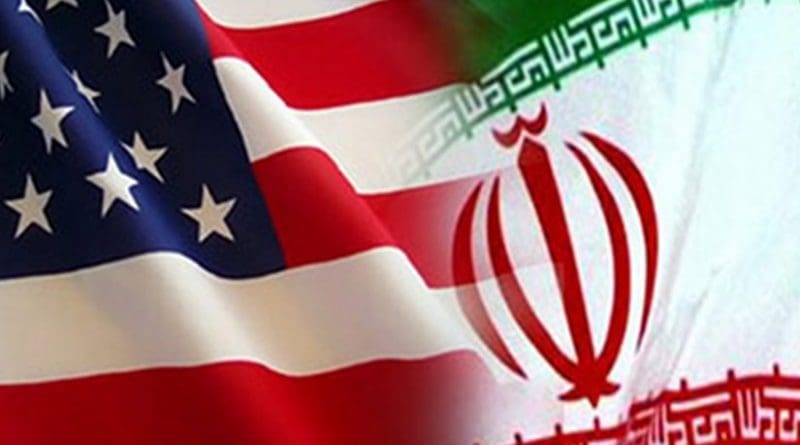Trump Tightens Screws On Iran
By Arab News
By Joyce Karam
Less than 48 hours after US President Donald Trump put Iran “on notice” for conducting a ballistic missile test, his administration responded Friday by slapping 25 Iranian entities and individuals — some based in China, Lebanon and the Gulf — with sanctions.
The move, while not a surprise, is a departure from the more diplomatic and measured response that Trump’s predecessor Barack Obama pursued for eight years with Tehran.
The sanctions include networks of individuals and companies that allegedly provide support, technology and funding for Iran’s ballistic missile program.
The networks are based in different locations in and outside Iran, spanning as far as China, Lebanon and the UAE. Some allegedly have direct affiliation with the Islamic Revolutionary Guards Corps and the Quds Force.
John Smith, the Treasury Department’s acting sanctions official, said in a statement that “Iran’s continued support for terrorism and development of its ballistic missile program poses a threat to the region, to our partners worldwide and to the US.”
In a conference call with reporters, three senior administration officials stressed that more sanctions could follow and that these are only “initial steps.”
One of the officials laid out the choices for Tehran as such: “We will work positively with Iran if it keeps (its international) commitments … or aggressively to counter its terrorism activities.”
The officials also held Iran directly “responsible” for actions that its proxies, such as the Houthis in Yemen, could take. One senior official said that Iran enjoys “heavy influence” on the Houthis and has granted them access to weapons and training. The same official said the US is “very concerned” about the Houthis’ targeting of Saudi and Emirati vessels and the impact of that on the “freedom of navigation and global commerce” in the Bab Al-Mandab Strait.
The Senate and House Democratic leadership did not have an immediate reaction to the sanctions, while ranking Congress Republicans hailed them.
“This announcement makes clear that it is a new day in US-Iran relations and that we will no longer tolerate Iran’s destabilizing behavior,” said Senate Foreign Relations Committee chairman Bob Corker in a statement. “A coordinated, multi-faceted effort to push back against a range of illicit Iranian behavior is long overdue,” he added.
The Trump administration did not confirm if it has any ongoing diplomatic channel with Iran. The president himself tweeted: “Iran is playing with fire — they don’t appreciate how ‘kind’ President Obama was to them. Not me!”
Among those hit by the new sanctions were companies, individuals, and brokers the US Treasury said support a trade network run by Iranian businessman Abdollah Asgharzadeh.
Treasury said he supported Shahid Hemmat Industrial Group, which the US has said is a subsidiary of an Iranian entity that runs Iran’s ballistic missile program.
Three Lebanese companies involved in waste collection, pharmaceuticals, and construction were also listed under the sanctions for being owned or controlled by Mohammed Abd-Al-Amir Farhat, allegedly an employee of Hasan Dehghan Ebrahimi.
Ebrahimi — a Beirut-based official with the IRGC’s Quds Force, which runs the military organization’s operations abroad — was put under sanctions for acting on behalf of the Al-Quds Force, Treasury said.
Treasury said he has facilitated millions of dollars in cash transfers to Lebanese militant group Hezbollah. Two of his employees and a company he manages were also sanctioned. Treasury said that Ebrahimi and his employees used a Lebanon-based network to “transfer funds, launder money, and conduct business.”
Iranian Foreign Minister Mohammed Javad Zarif tweeted on Friday ahead of the announcement: “Iran unmoved by threats as we derive security from our people. We will never initiate war, but we can only rely on our own means of defense”. Zarif led the nuclear negotiations in 2015.

